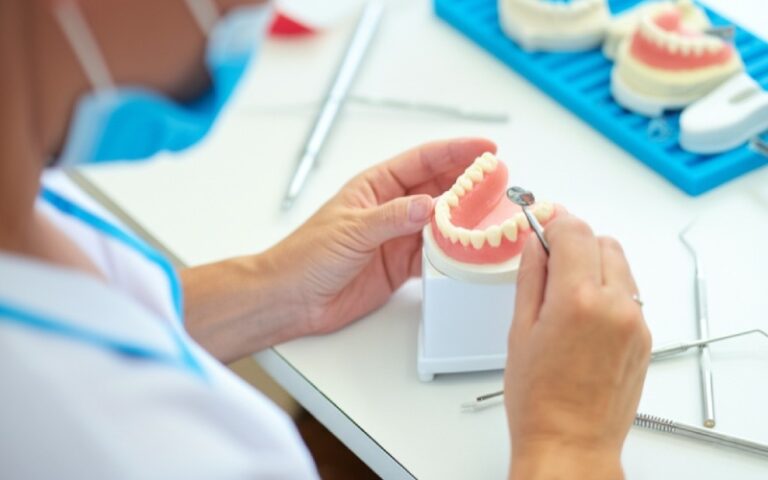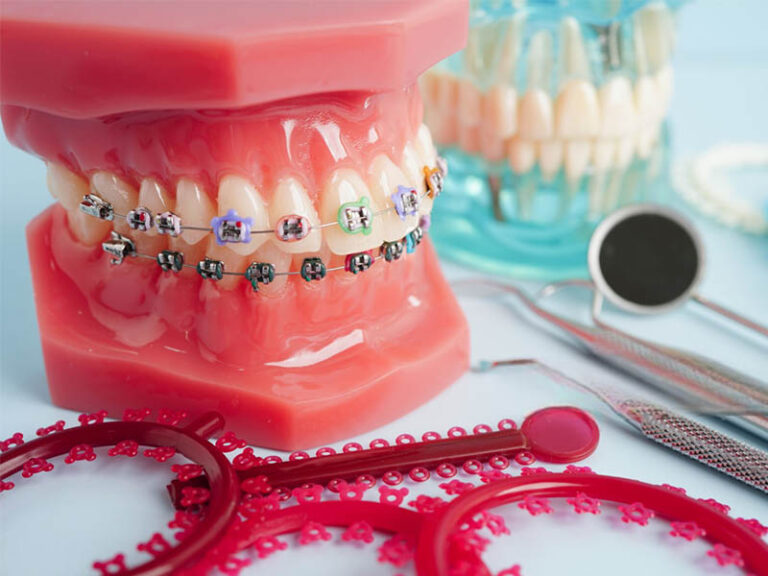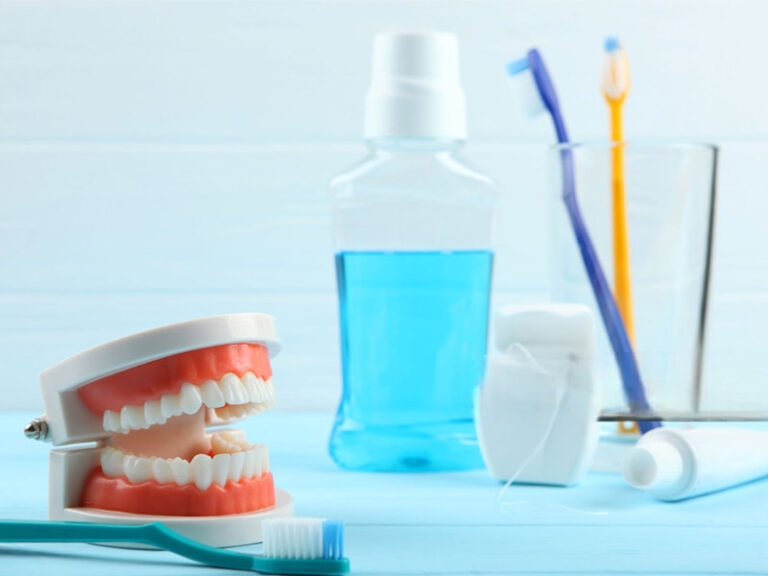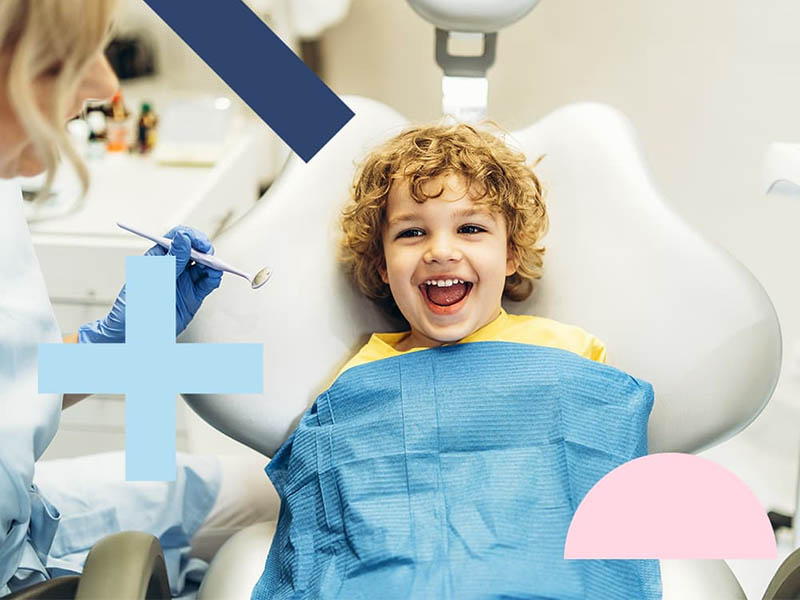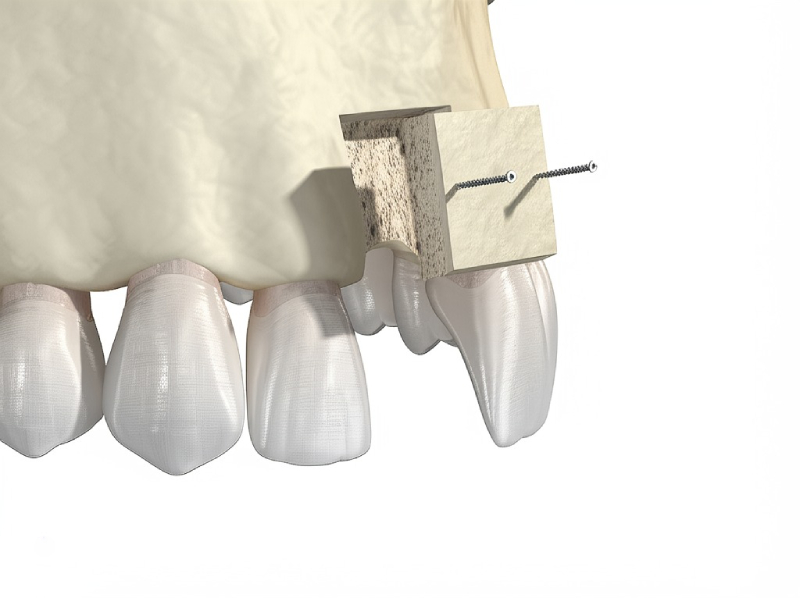
Navigating Dental Health During Pregnancy: A Simple Guide for Expectant Moms
Table of Contents
Introduction: My Story—Facing Pregnancy and Oral Health Openly
When I first found out I was pregnant, a million worries hit me—what should I eat, what vitamins do I need, which doctor should I see, and all that. I never even thought about my teeth. But then one morning, I was brushing my teeth and my gums started bleeding. I panicked. Was it safe to see my dentist now? Can getting my teeth cleaned, or a filling, or even x-rays hurt my baby? I had so many questions and no easy answers.
That’s when I decided to look for real facts. I read what the American Dental Association (ADA) and the American College of Obstetricians and Gynecologists (ACOG) say. What did I learn? Dental care isn’t just safe while you’re pregnant—it’s super important for both you and your baby. If you’ve ever sat in that dental chair, nervous and unsure if you’re making the right move, I wrote this guide for you.
Why Oral Health Is Extra Important When You’re Pregnant
How Pregnancy Hormones Mess With Your Gums
As soon as those pregnancy hormones showed up, I noticed changes all over—including in my mouth. All that extra estrogen and progesterone messes with your gums, not just your mood. My gums got puffy and bled sometimes when I brushed. I had what they call “pregnancy gingivitis”—turns out, that’s really common. The ADA says 6 or 7 out of 10 pregnant women have gum problems like that. If you act quickly, it’s easy to treat.
Why does this happen? Because your gums are more likely to get sore or swollen from the plaque on your teeth. Even if you always brushed and flossed before, you might still notice your gums acting up now. For me, going for a cleaning and brushing and flossing every day made my gums get better within weeks.
Gum Disease and Harder Pregnancies—How They Connect
At first, bleeding gums were just annoying. But then I found out it could be a sign of something worse—gum disease. And it turns out, bad gum disease can make your chances of giving birth too soon or having a small baby much higher. Studies show women with bad gum disease might be up to seven times more likely to have these problems. That scared me.
How does it happen? The infection makes your body pump out tiny “message chemicals” (cytokines). These can get from your gums to your blood and might reach your baby, starting trouble. After learning this, I called my dentist and my OB, and we worked out a plan to keep my mouth and baby safe.
How Your Mouth Can Help Protect Your Baby
Here’s something that surprised me: Keeping your mouth healthy can help your baby’s teeth, too. Moms can pass cavity bugs (like Streptococcus mutans) to babies, often just by sharing forks or kisses. When babies get these bugs early, they often get more cavities later.
With this in mind, I got my cavities filled, kept up with my dental visits, and brushed well. That way, I could give my baby a better shot at having zero cavities.
Common Dental Problems in Pregnancy
Pregnancy Gingivitis
Like I shared, pregnancy gingivitis is almost “normal” during pregnancy. Gums get red, swollen, bleed, and just feel sensitive. Some days it made me want to skip flossing, but pushing through helped the most.
Gentle brushing and daily flossing, along with cleanings at the dentist, made my gums calm down. Don’t avoid the dentist because you’re pregnant—seeing them is one of the best things you can do.
Periodontitis
If you ignore gingivitis, it can turn into something worse: periodontitis. This is when your gums pull away from your teeth, things get more infected, and your teeth or even the bone holding them can be in trouble. In pregnancy, this isn’t just about saving teeth. It can make health problems for you and your baby more likely.
What are the signs? Bad breath that won’t go away. Gums pulling back. Loose teeth. Pus. Don’t wait if you have these signs—see your dentist. Regular cleanings and a deep cleaning (called scaling and root planing) can stop it. These are safe, especially in the second trimester.
“Pregnancy Tumors” (Pyogenic Granulomas)
I was freaked out by the words “pregnancy tumor.” It sounds scary, right? But it’s not cancer, and it’s not a real tumor. These are small, red, and painless lumps on the gums, usually caused by irritation or hormones.
A friend of mine got one during her sixth month. Her dentist said it would probably shrink after she had the baby. Sometimes, dentists will take them out if they bother you, but usually they’re nothing to worry about.
More Cavities Than Usual
During pregnancy, I craved sweets more than ever before. Plus, brushing felt tougher when I felt sick or tired. All this can mean more cavities. Throw morning sickness into the mix—stomach acid on your teeth makes things worse.
If you’re getting sick a lot, rinse your mouth with water and a little baking soda to fight the acid. Wait at least half an hour before brushing, so you don’t scrape your enamel. Snack healthy when you can, brush and floss twice a day, and call your dentist if your teeth feel sore or look different.
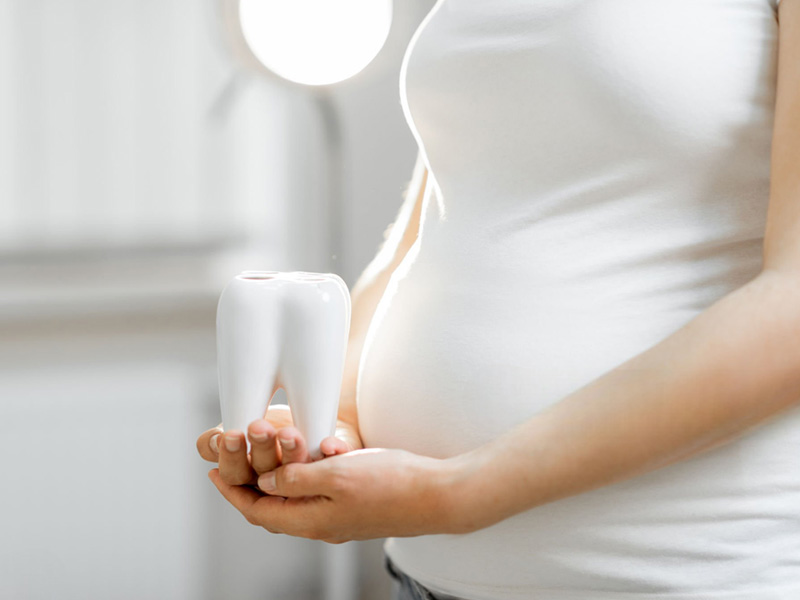
Your Safety List: What Dental Work Is Safe During Pregnancy
Experts Agree: Getting Dental Care Is OK
Let me say it clearly—both the American Dental Association and the American College of Obstetricians and Gynecologists say dental care is safe anytime during pregnancy. It’s not just OK—they want you to have it. Don’t listen to old advice about staying away from your dentist while pregnant.
Best Time for Dental Work: What Each Trimester Means
I learned timing matters for visits and certain procedures. Here’s what works:
First Trimester
Get your checkup and a regular cleaning now. Let your dentist know you’re pregnant, even if you’re just guessing. Wait on any work you don’t really need, unless you have a real dental emergency.
Second Trimester
This is the best window for any work you do need. I got my filling, and another cleaning, and felt good. You’re usually less queasy at this point, and sitting for longer is easier. If you need major work like a root canal or extraction, do it now.
Third Trimester
You can still get care, but lying flat is tougher. If you get dizzy or short of breath in the chair, ask for pillows or sit up for breaks. Unless it’s an emergency, anything big should wait until after the baby.
Are Dental X-Rays Safe?
I worried a lot about x-rays, but my dentist calmed me down. With a lead apron over my belly and neck, and modern x-rays, the amount of radiation is super tiny—way less than you get flying across the country. If your dentist needs an x-ray to find a problem, it’s much safer to get it than risk leaving an infection alone.
Numbing and Pain Relief
No one wants tooth pain. When I had to get a filling, my dentist said local numbing (usually lidocaine, with or without epinephrine) is safe in all stages of pregnancy. Yes, a bit of the medicine crosses over, but it doesn’t hurt the baby.
If I needed pain medicine later, I stuck with acetaminophen (Tylenol). My doctor said to skip aspirin and ibuprofen, especially late in pregnancy.
Antibiotics If You Need Them
Sometimes infections call for antibiotics. The usual ones—amoxicillin or clindamycin—are safe for pregnant women. When a dentist gives you something different, call your OB to check. Steer clear of tetracycline, as it can affect your baby’s teeth and bones.
Easy Steps for a Healthy Mouth
Talk to Your Doctors
I learned the hard way—make sure everyone knows you’re pregnant. Always tell your dentist how far along you are. My doctors liked working together, especially if I needed a prescription or a new medicine.
If your pregnancy is high risk, ask your OB for advice in writing to give your dentist. Everyone working together makes things safer.
How to Brush and Floss While You’re Pregnant
The simple stuff works best. Here’s what I did:
- Brushed twice a day with fluoride toothpaste and a soft toothbrush. If my gums were sore, I brushed gently or massaged my gums.
- Flossed every night, even when I was exhausted. It kept my gums from bleeding.
- Rinsed with water or water mixed with baking soda after throwing up. This helped get rid of the acid. (Remember, don’t brush right away—give it 30 minutes.)
- Used mouthwash without alcohol when my dentist said it might help with bacteria on my gums. Chlorhexidine is an example. Always ask before starting new stuff.
If you forget, leave toothbrush and floss right by your bed. Even on rough days, the basics go a long way.
Eating for a Healthy Mouth
Eating for two isn’t really true—you’re eating smart for two. I ate foods with lots of calcium, vitamin D, and things that help your teeth and bones—like yogurt, cheese, eggs, beans, and leafy greens. Cutting back on candy and sugary snacks was tough, but eating fruit, nuts, or cheese helped my teeth stay healthy.
Drink loads of water—it washes away food bits and keeps your mouth moist. If you get dry mouth, ask about sugar-free gum or xylitol mints, which help with saliva.
Frequently Asked Questions (FAQ)
Can I Get a Cavity Filled While Pregnant?
Yes! I got mine filled in the second trimester. If you have pain or think you have a cavity, go early. It’s safe and helps avoid bigger problems later.
Is It Safe to Have a Root Canal or Tooth Pulled?
Yes, especially if you’re hurting or have an infection. I had my root canal in my second trimester. Numbing medicine and other regular dental work are safe while you’re pregnant—just keep your doctors in the loop.
Should I Whiten My Teeth During Pregnancy?
I waited until after birth. There just isn’t enough info yet about teeth whitening and pregnancy safety, and it’s not a big health issue.
What Should I Do in a Dental Emergency?
Don’t “tough it out!” Things like strong tooth pain, swelling, broken teeth, fever, or pus are emergencies. Call your dentist or OB right away. I broke a tooth during my pregnancy, and my dentist fixed it safely.
Ending: Make Your Smile a Priority for a Healthy Pregnancy
Looking back, I’m glad I didn’t let old rules or fear keep me from the dentist. With advice from the ADA and ACOG, I learned dental visits and good brushing are safe—actually, they’re a vital part of being healthy for you and your baby. Every step, from daily brushing to getting dental work done, makes a difference.
The important lessons? Don’t ignore your gums, don’t put off pain, and keep open chats with all your doctors. Make smart food and brushing choices every day.
So here’s my advice—put dental visits on your must-do list while pregnant. Fixing your smile now does more than help you—it’s one of the first good things you can do for your baby.
This article uses advice from the American Dental Association (ADA), the American College of Obstetricians and Gynecologists (ACOG), and the CDC. Always talk to your own doctor or dentist about what’s best for you.

